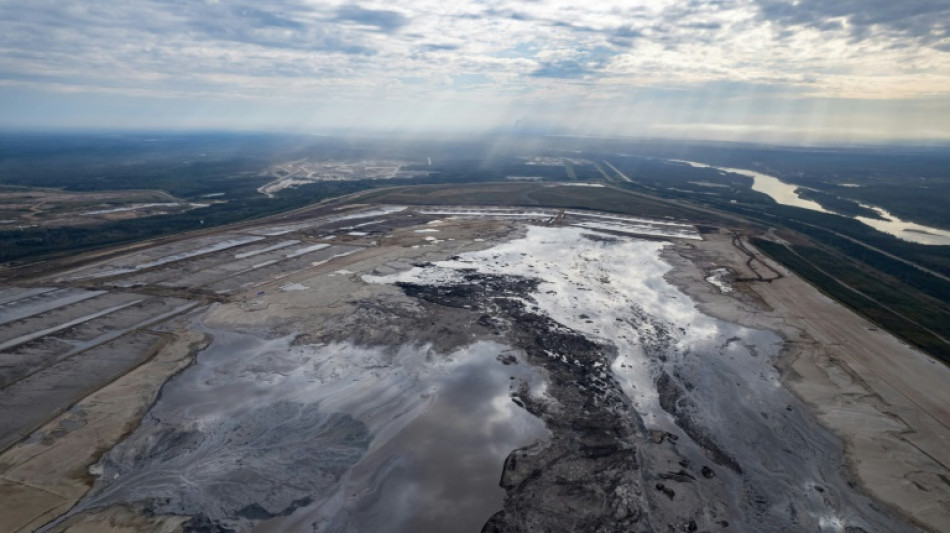
-
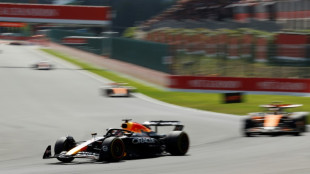 Verstappen begins new Red Bull era with Belgian sprint win
Verstappen begins new Red Bull era with Belgian sprint win
-
French left urges Macron to act over US plan to destroy contraceptives
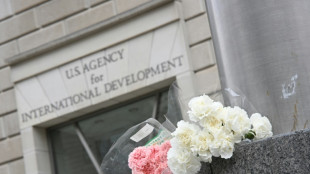
-
 Howe confident Isak will stay at Newcastle despite transfer talk
Howe confident Isak will stay at Newcastle despite transfer talk
-
Top seed Fritz falls as Raducanu and Fernandez win at DC Open

-
 Belgian region grapples with forever chemical scandal
Belgian region grapples with forever chemical scandal
-
New-look Australia focused on LA 2028 at swimming worlds

-
 China urges global consensus on balancing AI development, security
China urges global consensus on balancing AI development, security
-
David's century sparks Aussies to T20I clincher over WIndies

-
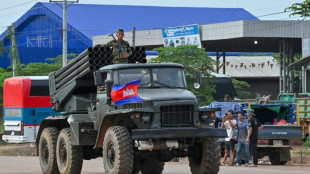 Death toll rises in Thai-Cambodian clashes despite ceasefire call
Death toll rises in Thai-Cambodian clashes despite ceasefire call
-
Taiwan votes in high-stakes recall election
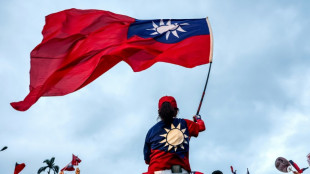
-
 China prodigy takes on swimming world aged 12
China prodigy takes on swimming world aged 12
-
UN gathering eyes solution to deadlocked Palestinian question
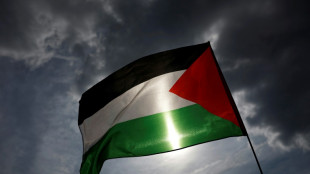
-
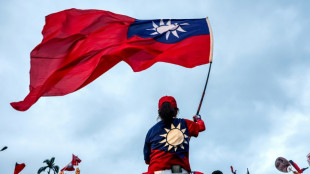 Polls open in Taiwan's high-stakes recall election
Polls open in Taiwan's high-stakes recall election
-
'Alien' lands at Comic-Con
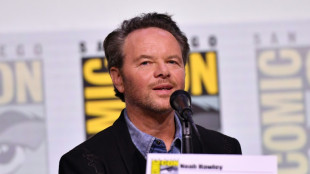
-
 Top footballers afraid to speak out against playing too many games: FIFPro chief
Top footballers afraid to speak out against playing too many games: FIFPro chief
-
Cambodia calls for ceasefire with Thailand after deadly clashes
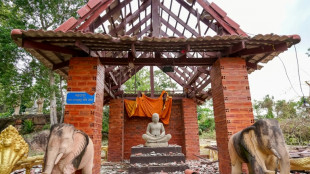
-
 Top US Justice official questions Epstein accomplice for 2nd day
Top US Justice official questions Epstein accomplice for 2nd day
-
Cambodia calls for ceasefire with Thailand: envoy to UN
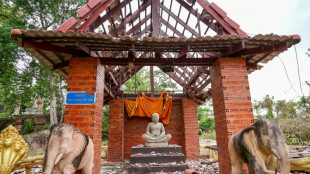
-
 Raducanu and Fernandez beat the heat to reach DC Open semis
Raducanu and Fernandez beat the heat to reach DC Open semis
-
US stocks end at records as markets eye tariff deadline
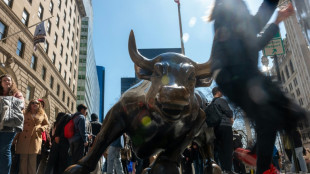
-
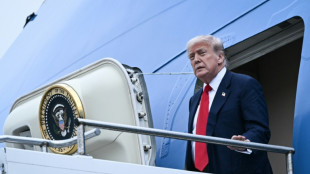 Trump, EU chief to meet Sunday in push for trade deal
Trump, EU chief to meet Sunday in push for trade deal
-
Fake AI photos of Trump with Epstein flood internet

-
 'Upset' Messi suspended over MLS All-Star no-show: league
'Upset' Messi suspended over MLS All-Star no-show: league
-
Ponting says 'no reason' why Root cannot top Tendulkar's run record

-
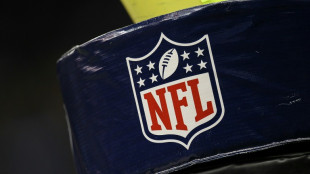 NFL players, employees fined for selling Super Bowl tickets: reports
NFL players, employees fined for selling Super Bowl tickets: reports
-
World's smallest snake makes big comeback

-
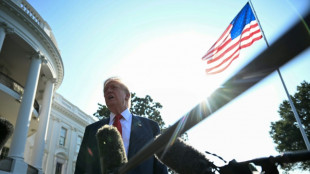 Trade on agenda as Trump lands in Scotland for diplomacy and golf
Trade on agenda as Trump lands in Scotland for diplomacy and golf
-
UN chief blasts 'lack of compassion' for Palestinians in Gaza

-
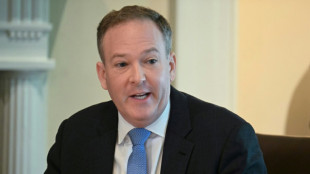 Trump administration expected to say greenhouse gases aren't harmful
Trump administration expected to say greenhouse gases aren't harmful
-
Hamilton suffers unprecedented spinning knockout in Belgian GP sprint qualifying

-
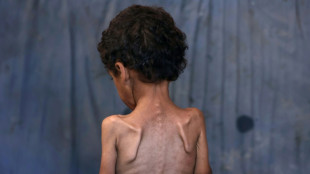 European powers urge end to Gaza 'humanitarian catastrophe'
European powers urge end to Gaza 'humanitarian catastrophe'
-
Messi, Alba suspended over MLS All-Star no-show: league

-
 RB's Permane returns as team boss at Belgian GP two years after sacking
RB's Permane returns as team boss at Belgian GP two years after sacking
-
Trump says '50/50 chance' of US-EU trade deal
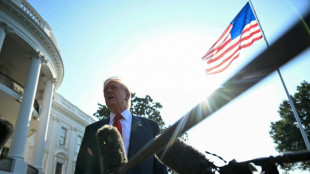
-
 Top US Justice official meets with Epstein accomplice for 2nd day
Top US Justice official meets with Epstein accomplice for 2nd day
-
Mekies makes retaining Verstappen his Red Bull priority

-
 Pogacar exits Alps with Tour stranglehold as Arensman edges white-knuckle win
Pogacar exits Alps with Tour stranglehold as Arensman edges white-knuckle win
-
Piastri takes pole for Belgian GP sprint race ahead of Verstappen

-
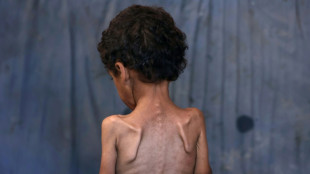 UK, France, Germany say Gaza 'humanitarian catastrophe must end now'
UK, France, Germany say Gaza 'humanitarian catastrophe must end now'
-
Stock markets mark time as Trump puts EU-US trade deal at 50/50

-
 Pogacar exits Alps with Tour stranglehold as Arensman takes stage
Pogacar exits Alps with Tour stranglehold as Arensman takes stage
-
France defends move to recognise Palestinian state
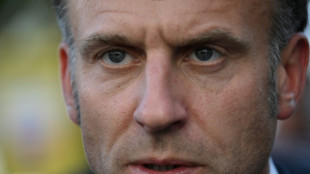
-
 Trade on agenda as Trump heads to Scotland for diplomacy and golf
Trade on agenda as Trump heads to Scotland for diplomacy and golf
-
France's top court annuls arrest warrant against Syria's Assad

-
 How might Trump's tariffs hurt Brazil?
How might Trump's tariffs hurt Brazil?
-
Rubiales forced kiss could drive Spain on in Euro 2025 final: England's Toone

-
 Trump says Hamas 'didn't want' Gaza deal as talks break down
Trump says Hamas 'didn't want' Gaza deal as talks break down
-
Tour de France prankster gets eight-month suspended term for crossing finish line

-
 Root climbs to second on all-time Test list as England dominate India
Root climbs to second on all-time Test list as England dominate India
-
Stock markets stall as Trump puts EU-US trade deal at 50/50

| BCC | 1.94% | 88.14 | $ | |
| NGG | -0.11% | 72.15 | $ | |
| CMSD | 0.17% | 22.89 | $ | |
| SCS | 0.66% | 10.58 | $ | |
| RYCEF | -0.3% | 13.2 | $ | |
| SCU | 0% | 12.72 | $ | |
| JRI | -0.46% | 13.09 | $ | |
| RIO | -1.16% | 63.1 | $ | |
| VOD | -0.79% | 11.43 | $ | |
| RELX | -1.86% | 52.73 | $ | |
| BCE | -0.95% | 24.2 | $ | |
| GSK | -0.68% | 37.97 | $ | |
| AZN | -1.4% | 72.66 | $ | |
| BP | 0.22% | 32.2 | $ | |
| BTI | -0.71% | 52.25 | $ | |
| RBGPF | -1.52% | 73.88 | $ | |
| CMSC | 0.24% | 22.485 | $ |

Fort McKay: where Canada's boreal forest gave way to oil sands
The acrid stench of gasoline permeates the air. And the soot coats everything in sight: the trees, the bushes, even the snow in winter. And all day long, explosions send the birds soaring to safety.
At Fort McKay near Fort McMurray in western Canada, in the heart of the country's boreal forest, the pines and the people were long ago cleared out to make way for huge open-pit mines dedicated to excavation of oil sands.
It's one of the biggest industrial projects in the world: as seen from above, the zone is in stark contrast to the vast expanse of green surrounding it. Huge black holes are gouged in the brown earth -- they are giant pools of water.
Then there is the network of roads on which hundreds of trucks drive every day, and the immense factories, with smoke spewing from wide chimneys.
On the ground, the noise is deafening. And it's quite a scene for the uninitiated: in the middle of the huge basins dug to capture the polluted waters stand huge metal scarecrows clad in helmets and security vests.
The ghoulish creatures are designed to scare away millions of migratory birds that arrive every year in this northern part of Alberta province. Adding to the mayhem: airhorns that are used several times a minute.
The mines have made the people left in Fort McKay -- many of them Indigenous Canadians -- very rich. But the installations have also profoundly altered and damaged the land on which their ancestors relied for centuries.
"Everything has changed, everything's destroyed to me now," says 74-year-old Margie Lacorde who lives in the center of town in a house chock full of knick knacks and framed photographs.
The talkative Lacorde, who belongs to the Metis people, is sad to see the parched, yellowing leaves due to drought, and wishes she could still swim in the rivers and gather berries in the forest like she did in her youth.
The hunting grounds are long gone -- the land was sold for industrial use.
"The pollution is killing our nature," Lacorde tells AFP, though she herself worked in the oil industry for years to provide for her family.
She remembers her childhood with a significant bit of nostalgia.
Back then, families gathered snow and melted it to use as drinking and cooking water. Such a thing would be impossible today -- once the snow hits the ground, it's immediately filthy, covered in the dust that filters down from the factories.
- 'Desecrated' -
"We're First Nations and this is our territory that is all being desecrated by the oil industry for the sake of the dollar, money, prosperity," says Jean L'Hommecourt, an environmental activist who took up the fight her parents once championed.
Even if agreements were reached with Indigenous communities to create jobs and protect some natural resources, the ecological impact of mining the oil sands have been so great that the 59-year-old woman says her people are now at risk.
"I lost my prosperity when the industry came in and took over all our lands and our waters and our access to our wildlife... everything that we depend on to sustain our culture has been compromised by industry," she says bitterly.
The area is a far cry from the picture postcard ideal of the Canadian West. There are no crystalline blue waterways or fish-filled rivers here.
Instead, Moose Lake -- sacred to L'Hommecourt's Dene people -- is now only accessible by all-terrain vehicle, a five-hour drive on a road pockmarked by potholes that runs in between the mines.
When she was growing up, L'Hommecourt's family cabin was in the middle of the forest, far away from the noise and bustle. But after the first oil sands mine was built in 1967, development proceeded at a rapid pace.
Today, the active oil sands extraction sites form a chain that is more than 60 kilometers (40 miles) long, hugging the shores of the Athabasca River.
Fort McKay -- population, 800 or so -- is a tiny speck on a map of this industrial complex.
Canada is home to 10 percent of the world's known crude oil reserves -- much of that is found in the oil sands of Alberta.
Every day, nearly three million barrels of crude are extracted from the sands, according to official government data, helping to make Canada the world's fourth largest oil producer, and the primary exporter of crude to the United States.
In all, more than 4,800 square kilometers are used for oil sands mining.
At first, local populations were consulted and their fears were noted, L'Hommecourt says.
"And then they just said okay, well, we collected the information, we collected their concerns and everything else and we'll mitigate with the money," she added.
- Pollution -
Many environmental activists say the impact of the oil industry is so great that the term "ecocide" is not too strong. Beyond the tangible destruction of the boreal forest, there is the massive amount of pollution in the air.
The oil and gas sector accounts for a quarter of Canada's greenhouse gas emissions, according to the latest official figures released this year. Of that total, the oil sands are responsible for 12 percent.
And traces of other toxic emissions, such as sulfur and nitrogen oxides, have been detected in the soil and the snow dozens of kilometers from the mining zone.
The industry also consumes a massive amount of water, taken from nearby rivers and lakes.
"There's still a lot we need to do on recognizing the harm from cleaning up existing operations," says Keith Stewart of the environmental pressure group Greenpeace, slamming companies that drag their feet on such matters.
Stewart nevertheless acknowledges a "huge shift" on protecting the environment in recent years.
"For a long time, even the notion that we could limit expansion was viewed as crazy and now... the idea of large-scale expansion now seems crazy," he said.
That reversal is not uniformly popular, as not everyone here sees the oil sands as a bad thing.
"The reality is that they shut off the oil sands tomorrow, my community would starve," says Ron Quintal, chief of the Fort McKay Metis, noting that nearly everyone around works in or for the industry.
For Quintal, "Indigenous communities have spent 30 to 40 years... trying to get their foot in the door" so it would be "very difficult for us to try to take our people backward."
He added matter-of-factly: "The development of the oil has empowered us to be able to do things that weren't possible before."
L.Durand--AMWN


